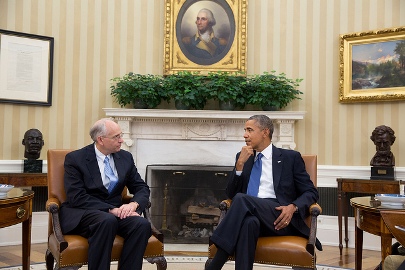U.S. welcomes gov’t unilateral cessation of hostilities in Sudan’s Two Areas
June 21, 2016 (KHARTOUM) – The U.S. administration Tuesday welcomed the four-month cessation of hostilities announced by the Sudanese government, and called on the rebel groups to follow the move saying it would allow humanitarian access to the war affected civilians.

Kibry further said the unilateral truce is an important and welcome step towards a peaceful resolution to conflict in the Two Areas and called on Khartoum to extend it to the Darfur region.
He also called on the two factions of the Sudanese Revolutionary Front (SRF) to commit to a six-moth cessation of hostilities they declared on 28 April after a meeting in Paris.
” We encourage bot?h, the Government of Sudan and the opposition, to work under the auspices of the African Union High-Level Implementation Panel (AUHIP) to translate their cessation of hostilities declarations, which must ultimately include the region of Darfur, into a sustainable end to this conflict,” added the American diplomat.
US Special Envoy for the two Sudans, Donald Booth, met with the opposition groups last week in Addis Ababa and encouraged them to ink a Roadmap Agreement facilitated by the AUHIP and signed by the Sudanese government.
However, the opposition groups refused the request and proposed to add a supplemental agreement to the roadmap. The Sudan Call forces insist on the need to include their demand for a pre-dialogue conference to discuss additional confidence building measures the peace plan didn’t mention.
Kirby said that a negotiated solution to the conflicts is needed in order to establish a lasting peace, and terminated his statement by calling on the warring parties to allow “unfettered access for humanitarian organizations to deliver lifesaving aid to all Sudanese citizens affected by the conflict”.
(ST)
